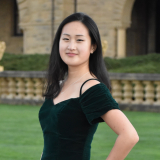Multispecific CAR T Cells for Osteosarcoma

Mentor: Robbie Majzner
Chimeric Antigen Receptor (CAR) T cells have shown tremendous promise as a durable therapy for pediatric acute lymphoblastic leukemia and certain types of lymphoma. T cells are harvested from a patient and engineered to express a synthetic version of the T cell receptor, capable of specifically killing tumor cells. CARs contain an antibody fragment that targets a specific tumor antigen in addition to signaling domains that enact T cell killing. The major source of relapse and resistance to CAR T cell therapy has been antigen loss; tumor cells downregulate expression of the target, and CAR T cells are thus unable to kill the tumor cells. Osteosarcoma is the most common bone tumor occurring in children. While many patients can be cured with surgery and traditional chemotherapy, children with relapsed or metastatic disease almost always die of their disease. Additionally, osteosarcoma survivors have the highest rate of late effects among all pediatric cancers. This project will build on previous advances from the Majzner Lab in generating CAR T cells directed against B7-H3, GD2, and Her2 that have worked well in preclinical models of osteosarcoma. However, tumors from patients are often heterogeneous in their expression of these targets, and no single CAR is likely to mediate durable responses in osteosarcoma. This project will focus on the generation of novel, trispecific CAR T cells against B7-H3, GD2, and Her2. By targeting multiple antigens simultaneously, we will increase the likelihood of therapeutic success for treating children with osteosarcoma.

